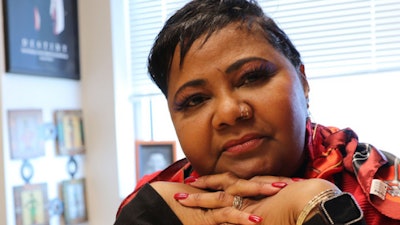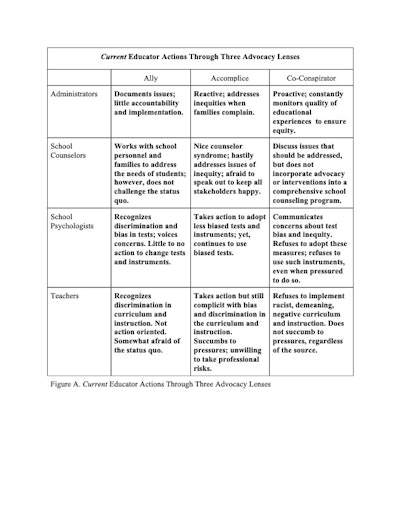 Dr. Donna Y. Ford
Dr. Donna Y. Ford
Moreover, personal biases and beliefs about certain student populations can impede an educator from effectively teaching their students. To become a co-conspirator in education, educators must understand the presenting issues, policies, and socio-political dynamics that serve as barriers to helping students achieve holistic success, especially for Black students. Moreover, educators need a set of strategies to assist them to not only help students but to advocate for them at a transformational level.
We agree with the ally, accomplice, and conspirator framework but think it can go further. In our framework:
 Figure A
Figure A
(b) Accomplices are anti-racist in philosophy and actions, but risk-taking is minimal and reactive.
(c) Co-conspirators are both; they are culturally responsive and anti-racist. They take on the status quo and are willing to take professional risks and reject white privileges. These professionals are proactive.
Following, we attend to education with the understanding that discipline can serve as a bridge to whether Black students are referred for special education or gifted and talented education.




















